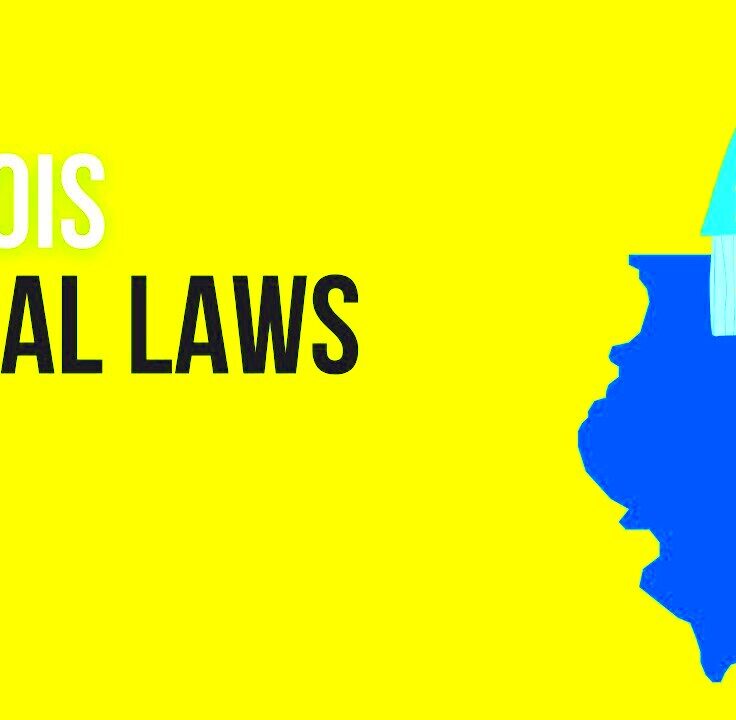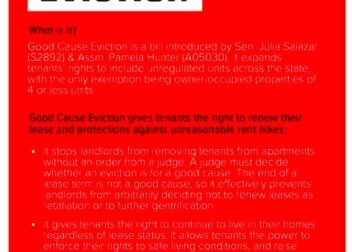Illinois Commercial Real Estate Laws Explained
Illinois commercial real estate laws play a vital role in how businesses operate and invest in property. Understanding these laws is essential for anyone involved in commercial real estate, whether you are a buyer, seller, tenant, or landlord. The laws provide a framework that governs transactions, leases, and property rights. This article will help you navigate the complexities of Illinois commercial real estate laws, ensuring you make informed decisions in your ventures.
Key Regulations Governing Commercial Real Estate

Illinois has several key regulations that govern commercial real estate. Here are some important aspects to consider:
- Real Estate Licensing Act: This act regulates real estate professionals and requires licenses for brokers and salespeople.
- Illinois Commercial Code: This code covers transactions and financing in commercial real estate, including secured transactions.
- Property Management Regulations: Property managers must adhere to specific regulations, ensuring fair treatment of tenants and maintaining properties.
- Zoning Laws: Local zoning laws dictate how property can be used, impacting commercial development.
- Environmental Regulations: Illinois laws also enforce environmental standards, especially regarding hazardous materials and waste disposal.
Staying informed about these regulations helps you avoid legal pitfalls and ensures compliance in your real estate transactions.
Types of Commercial Real Estate Transactions

Commercial real estate transactions come in various forms, each with its own characteristics and requirements. Here are the main types:
| Transaction Type | Description |
|---|---|
| Sales Transactions | This involves the sale of commercial properties, requiring thorough due diligence and negotiation. |
| Leasing Transactions | Leases can be short-term or long-term and include various terms that outline the responsibilities of landlords and tenants. |
| Financing Transactions | These include mortgages and loans, often requiring legal documentation and compliance with Illinois financing laws. |
| Joint Ventures | Parties may collaborate to develop properties, sharing risks and rewards through contractual agreements. |
Understanding these transaction types will help you navigate the commercial real estate landscape in Illinois effectively. Whether you are buying, leasing, or financing, each type requires careful attention to detail and legal considerations.
Understanding Commercial Leases in Illinois
Understanding commercial leases in Illinois is crucial for both landlords and tenants. A commercial lease is a contract that outlines the terms under which a tenant can occupy a commercial property. These leases differ significantly from residential leases, so it’s important to grasp their unique features. Key elements typically include the duration of the lease, rental payments, maintenance responsibilities, and conditions for terminating the lease.
Here are some common types of commercial leases:
- Gross Lease: The landlord covers all operating expenses, and the tenant pays a fixed rent.
- Net Lease: The tenant pays a base rent plus additional costs like property taxes, insurance, and maintenance.
- Percentage Lease: The tenant pays rent based on a percentage of sales made in the leased space, common in retail.
- Modified Gross Lease: This is a hybrid of gross and net leases, where some expenses are shared between landlord and tenant.
Before signing any lease, it’s wise to consult a legal professional. They can help you understand the terms and protect your interests, ensuring a smoother leasing process.
Financing Commercial Real Estate in Illinois
Financing commercial real estate in Illinois can be a complex process, but understanding your options makes it more manageable. Commercial properties usually require significant capital, and there are various ways to secure financing. Here are some common financing options:
- Traditional Bank Loans: Many banks offer loans specifically for commercial real estate, typically requiring a solid business plan and credit history.
- Commercial Mortgage-Backed Securities (CMBS): These are bonds backed by mortgages on commercial properties, offering investors a way to invest in real estate.
- Hard Money Loans: These loans are provided by private lenders and come with higher interest rates but faster approval times.
- Small Business Administration (SBA) Loans: The SBA offers loan programs designed to help small businesses purchase commercial properties.
Understanding the terms and conditions of each financing option is vital. Working with a financial advisor or a real estate attorney can help you navigate the landscape and choose the best option for your needs.
Property Taxes and Assessments for Commercial Real Estate
Property taxes and assessments are critical considerations for anyone involved in commercial real estate in Illinois. These taxes are based on the assessed value of the property and can significantly impact your bottom line. Understanding how property taxes work can help you budget effectively and avoid surprises.
Here are key points to consider:
- Assessment Process: In Illinois, properties are assessed at 33% of their fair market value. Local assessors determine property values annually or biannually.
- Tax Rate: The local taxing authority sets the tax rate, which varies by location and is influenced by local budget needs.
- Exemptions: Certain exemptions may be available, such as those for non-profit organizations or properties used for specific purposes.
- Appealing Assessments: If you believe your property has been overassessed, you have the right to appeal the assessment through local boards or courts.
Being proactive about property taxes and understanding the assessment process can help you manage costs effectively and ensure you’re not overpaying.
Dispute Resolution in Commercial Real Estate
Disputes in commercial real estate can arise from various issues, including lease disagreements, property boundaries, or contract breaches. Understanding how to resolve these disputes efficiently is crucial for protecting your investments and maintaining good relationships. In Illinois, there are several methods for dispute resolution, each with its own advantages.
Here are the common methods:
- Negotiation: This is often the first step in resolving disputes. Parties discuss the issues and try to reach a mutual agreement without involving third parties.
- Mediation: In mediation, a neutral third party helps facilitate a discussion between the parties involved, aiming to help them find a resolution. This process is generally less formal and quicker than litigation.
- Arbitration: Arbitration involves a neutral third party who listens to both sides and makes a binding decision. It is more formal than mediation but often faster and less costly than going to court.
- Litigation: If other methods fail, parties may resort to litigation, which involves filing a lawsuit in court. This is often the most time-consuming and expensive option.
Choosing the right method for dispute resolution depends on the nature of the dispute and the relationship between the parties. It’s wise to consult a legal professional to determine the best approach for your situation.
Frequently Asked Questions
As you navigate the world of commercial real estate in Illinois, you may have some common questions. Here are answers to a few frequently asked questions:
- What is a commercial lease? A commercial lease is a contract between a landlord and tenant that outlines the terms for renting a commercial property.
- How are property taxes assessed? Property taxes in Illinois are based on the assessed value of the property, which is typically set at 33% of its fair market value.
- What financing options are available for commercial real estate? Options include traditional bank loans, SBA loans, hard money loans, and commercial mortgage-backed securities.
- Can I appeal my property tax assessment? Yes, property owners can appeal their assessments if they believe their property has been overvalued.
- What should I do if a dispute arises? Start by trying to negotiate a resolution. If that fails, consider mediation or arbitration before resorting to litigation.
These FAQs cover some basic concerns, but it’s always a good idea to consult with a real estate attorney for specific legal advice tailored to your situation.
Conclusion on Illinois Commercial Real Estate Laws
Navigating Illinois commercial real estate laws can seem daunting, but understanding the fundamentals is key to making informed decisions. From knowing the ins and outs of commercial leases to grasping financing options and property taxes, having a solid knowledge base empowers you in your real estate endeavors. Dispute resolution methods also play a critical role, ensuring that conflicts can be managed effectively without unnecessary delays or costs.
Whether you’re a landlord, tenant, or investor, being informed about the legal landscape helps you protect your rights and investments. Always consider seeking professional legal guidance to ensure compliance and to navigate any complexities that may arise in your real estate transactions.
With the right knowledge and support, you can confidently engage in the commercial real estate market in Illinois.


